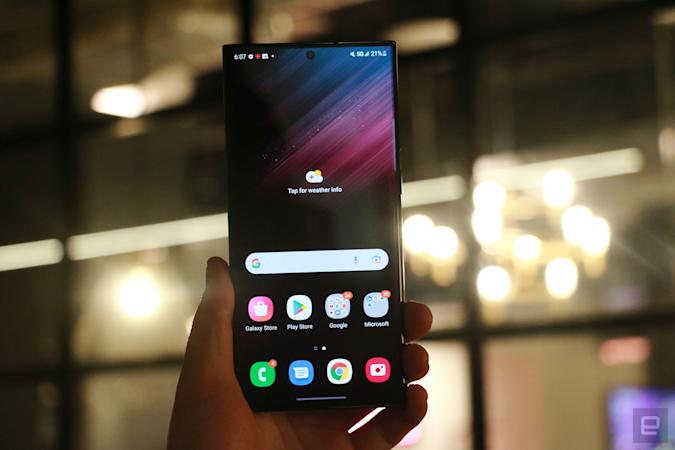Hackers steal sensitive data from Samsung
- Posted on March 08, 2022
- Technology
- By Glory

Hackers infiltrated
Samsung's internal company data on Monday, accessing some of the company's
source codes for Galaxy-branded devices, the company said.
After hackers accessed
and exposed about 200 terabytes of secret data, including source code for
several of its technologies and algorithms for biometric unlock operations, the
company acknowledged the security incident.
The announcement comes
after the hacking organization Lapsus$ claimed on its Telegram channel over the
weekend that it had obtained 190 gigabytes of confidential source code from
Samsung. Lapsus$ is the same group that reportedly penetrated Nvidia, leaking
thousands of worker credentials online. The group alleged to have retrieved
source code for trusted software applications installed in Samsung's TrustZone
environment, which are used in Samsung smartphones for sensitive operations,
algorithms for all biometric unlock operations, and bootloader source code for
all recent Samsung Galaxy devices, according to TechCrunch.
The Galaxy brand includes
Samsung's consumer electronics, such as smartphones and tablets. According to
the company, there will be no impact on its business or customers.
In its statement, the
tech giant did not mention any specific hacking group or specify what data was
stolen.
“We were recently made
aware that there was a security breach relating to certain internal company
data. Immediately after discovering the incident, we strengthened our security
system,” a Samsung spokesperson told CNBC. “According to our initial analysis,
the breach involves some source codes relating to the operation of Galaxy
devices, but does not include the personal information of our consumers or
employees.”
Accessibility to source
code could aid threat actors in identifying vulnerabilities that would
otherwise go undetected, possibly exposing vulnerable devices or systems to
exploit or data theft. The stolen data purportedly contains proprietary
information from Qualcomm, a US chipmaker that supplies chipsets for Samsung
handsets sold in the US.
“We take these claims
very seriously and are working expeditiously with Samsung to understand the scope
of the incident, as well as to confirm what Qualcomm data, if any, has been
impacted. We have no reason to believe that Qualcomm systems or security were
impacted as a result of this reported incident,” said Qualcomm spokesperson
Clare Conley.
It's unclear whether
Lapsus$ wanted a ransom from Samsung before publishing the information, like it
did with Nvidia's increasingly odd requests. The group urged that Intel disable
its contentious Lite Hash Rate (LHR) feature and open-source its graphics chip
drivers for macOS, Windows, and Linux devices.
Although the deadline
passed on Friday, the hacker gang has yet to carry out its threat.


Be the first to comment!
You must login to comment